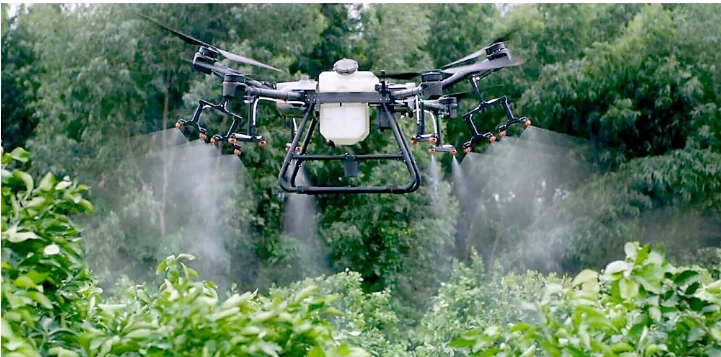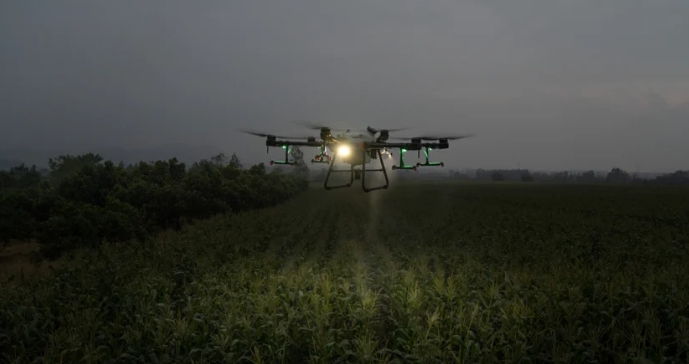Check out our packages and contact our team today to help get your started!
EPA State Regulations and Licenses
Navigating EPA Requirements Across States: The Environmental Protection Authority (EPA) in Australia plays a critical role in regulating the use of chemicals, particularly in agricultural applications, to ensure that operations are conducted safely and with minimal environmental impact. When it comes to operating RPAS for agricultural purposes, each state has its own specific regulations and licensing requirements that must be adhered to.
NOTE: Each EPA state regulator in Australia has different policies and guidelines regarding drone operations, particularly for Night and Swarming Operations. These regulations are evolving, and operators must stay informed about the latest updates and ensure compliance with state-specific requirements.
Each Australian state has its own EPA with unique regulations and guidelines that drone operators must follow. These regulations may include specific licensing requirements for the application of chemicals, operational restrictions, and safety protocols. For example, New South Wales (NSW) has different requirements for obtaining an RPAS Aerial Chemical Application Pilot Licence compared to Queensland.
ChemCert AQF3 Certification

The ChemCert AQF3 certification is a critical qualification for anyone involved in the application of chemicals in the agricultural sector. This certification ensures that individuals are knowledgeable about the safe and effective use of agricultural chemicals, meeting both regulatory requirements and industry best practices.
The ChemCert AQF3 certification is an essential qualification for anyone involved in the application of agricultural chemicals. It ensures that operators are equipped with the knowledge and skills necessary to apply chemicals safely, legally, and effectively, thereby protecting themselves, the public, and the environment.
Tap the following link to dive right into the ChemCert AQF3 website - be sure to mention that you heard about it from us!
- Legal and Regulatory Compliance: The ChemCert AQF3 certification is often a mandatory requirement for anyone applying agricultural chemicals, particularly for commercial operators or landholders who use pesticides and herbicides on a large scale. In Australia, state and territory governments enforce strict regulations on chemical usage to protect public health, the environment, and ensure that chemicals are used in a way that minimizes harm.
- Environmental Safety: The certification emphasizes the importance of minimizing the environmental impact of chemical applications. This includes understanding how to avoid contamination of waterways, reduce spray drift, and apply chemicals in a manner that is safe for non-target species and ecosystems. The training provides knowledge on how to handle chemicals responsibly, which is crucial for compliance with state Environmental Protection Authority (EPA) regulations.
- Workplace Safety: For those involved in agricultural operations, the safe handling, storage, and application of chemicals is paramount. The ChemCert AQF3 certification covers the necessary safety protocols to protect workers from exposure to hazardous substances, ensuring that they are equipped to handle chemicals safely and responsibly.
Night RPAS Chemical Application Operations

Night RPAS (Remotely Piloted Aircraft Systems) chemical application operations represent a significant advancement in agricultural technology, offering unique advantages over traditional daytime spraying methods. These operations are rapidly gaining traction due to their efficiency, reduced environmental impact, and ability to address specific agricultural challenges.
In summary, Night RPAS Chemical Application Operations offer substantial benefits in terms of efficiency, environmental protection, and crop health. However, these operations require careful adherence to regulatory requirements and best practices to fully realize their potential.
- Reduced Environmental Impact: Nighttime operations can result in less chemical drift, particularly in regions with high daytime temperatures and winds. The cooler, calmer conditions at night help to ensure that chemicals remain closer to their intended target, reducing the risk of drift into nearby water bodies, neighboring fields, or residential areas. This is especially crucial for areas with sensitive ecosystems or where crops are adjacent to watercourses.
- Improved Precision and Coverage: The use of advanced RPAS technology during night operations allows for more precise application of chemicals. With less thermal turbulence and wind interference, drones can maintain a consistent altitude and speed, ensuring even coverage across the field. This precision is further enhanced by the use of GPS and advanced sensors that allow for accurate targeting of specific areas that need treatment.
- Optimal Chemical Absorption: Crops and pests can be more vulnerable at night, leading to better absorption of chemicals. Some pests, for example, are more active or exposed during cooler night temperatures, making nighttime spraying more effective. Additionally, the lower temperatures can reduce the evaporation rate of chemicals, allowing them to remain on the crops for longer periods and enhancing their effectiveness.
- Increased Operational Efficiency: Night operations can maximize the utilization of RPAS, allowing for continuous operation around the clock. This is particularly beneficial during peak seasons when time is of the essence, enabling farmers to cover more ground in less time without the restrictions imposed by daylight hours.
Importance of Staying Updated on State Policies
EPA RPAS Aerial Chemical Application Pilot Licence and Business Licence
For those operating in New South Wales, obtaining an EPA NSW RPAS Aerial Chemical Application Pilot Licence is essential for legally applying chemicals via drone. The process involves completing the ChemCert AQF3 certification, followed by an application to the EPA for your pilot licence.
In addition, if you intend to offer your services commercially, you will need to secure an EPA Business Licence. This involves meeting specific regulatory requirements to ensure compliance with environmental safety standards and demonstrating that your operations follow best practices for chemical application. The process typically includes submitting your qualifications, operating procedures, and evidence of safe chemical handling practices to the Regulator for Licence approval.